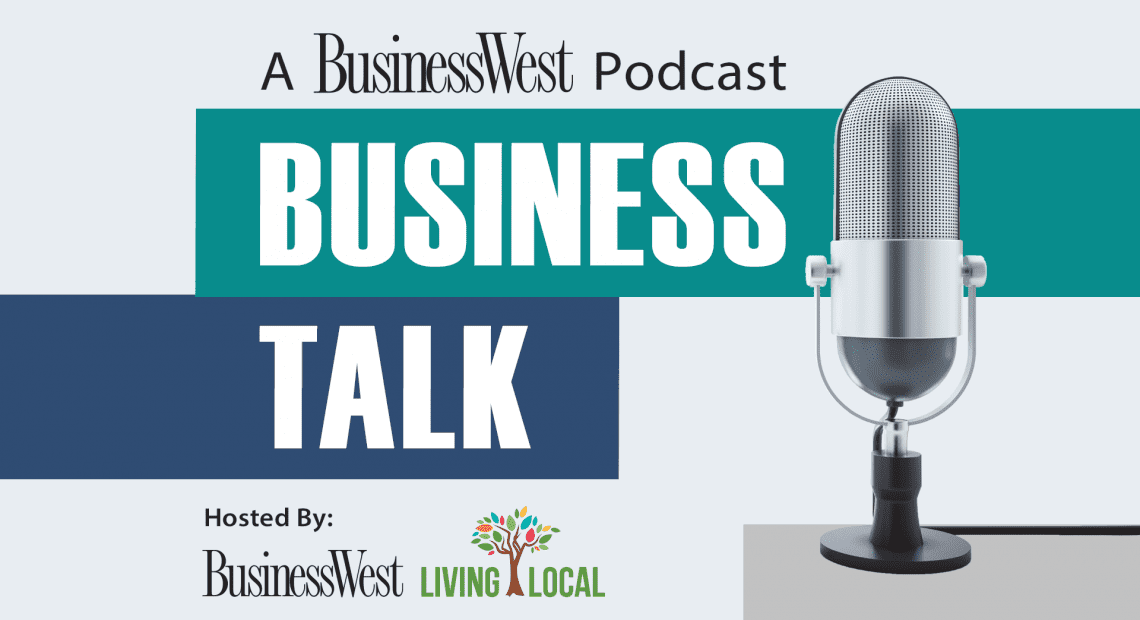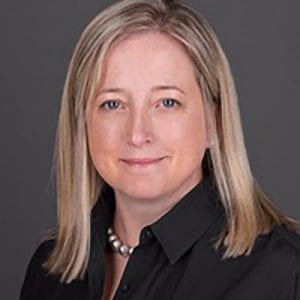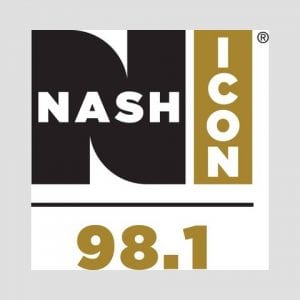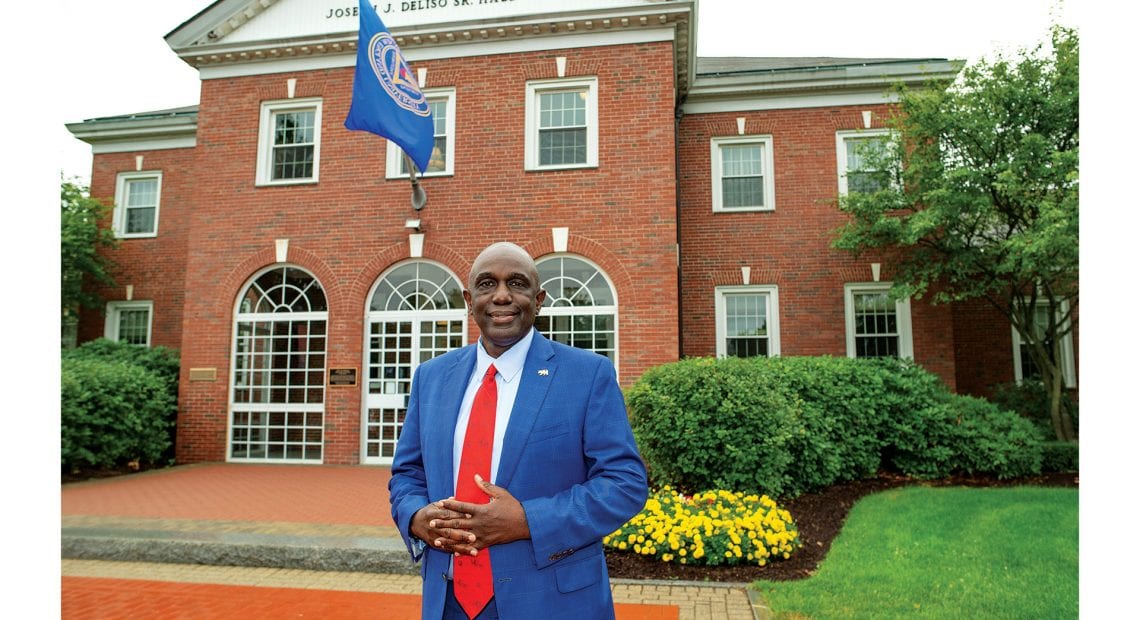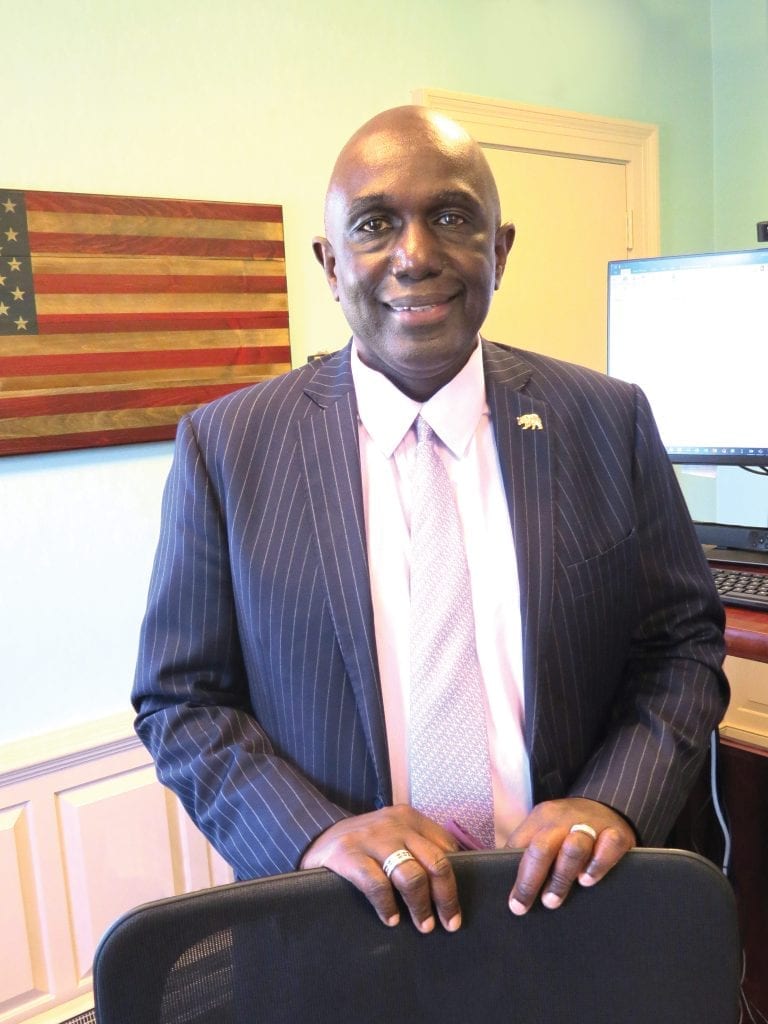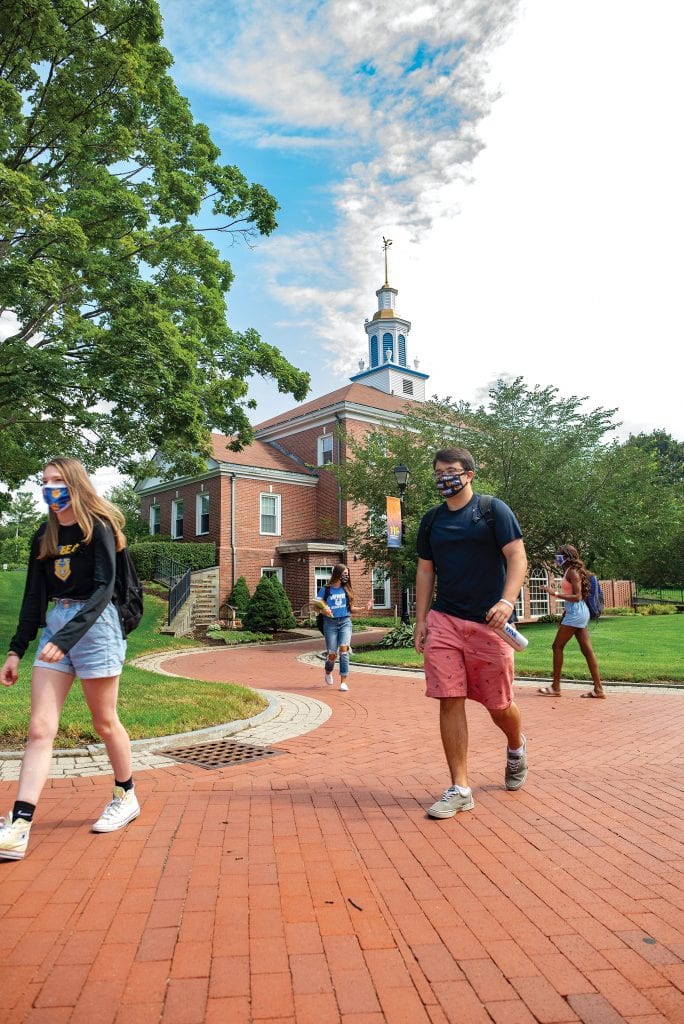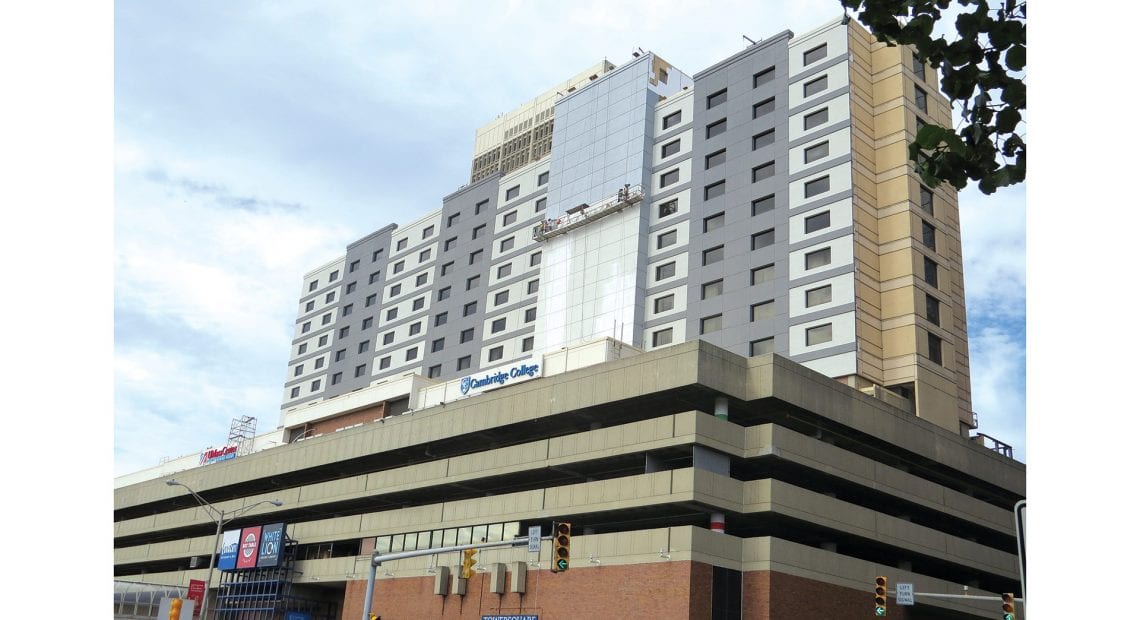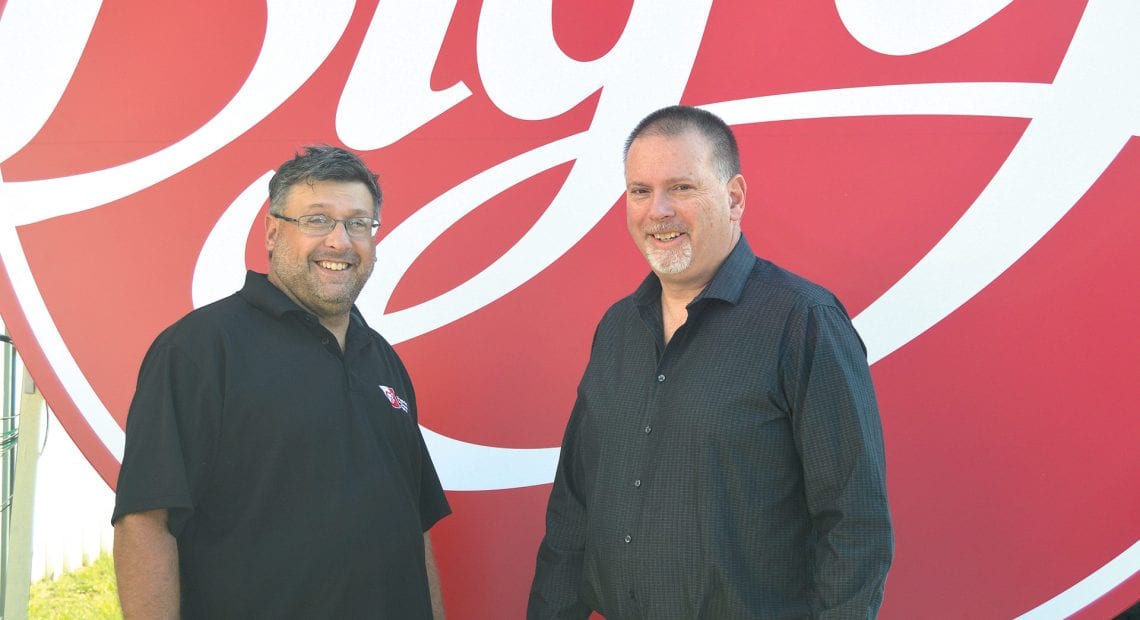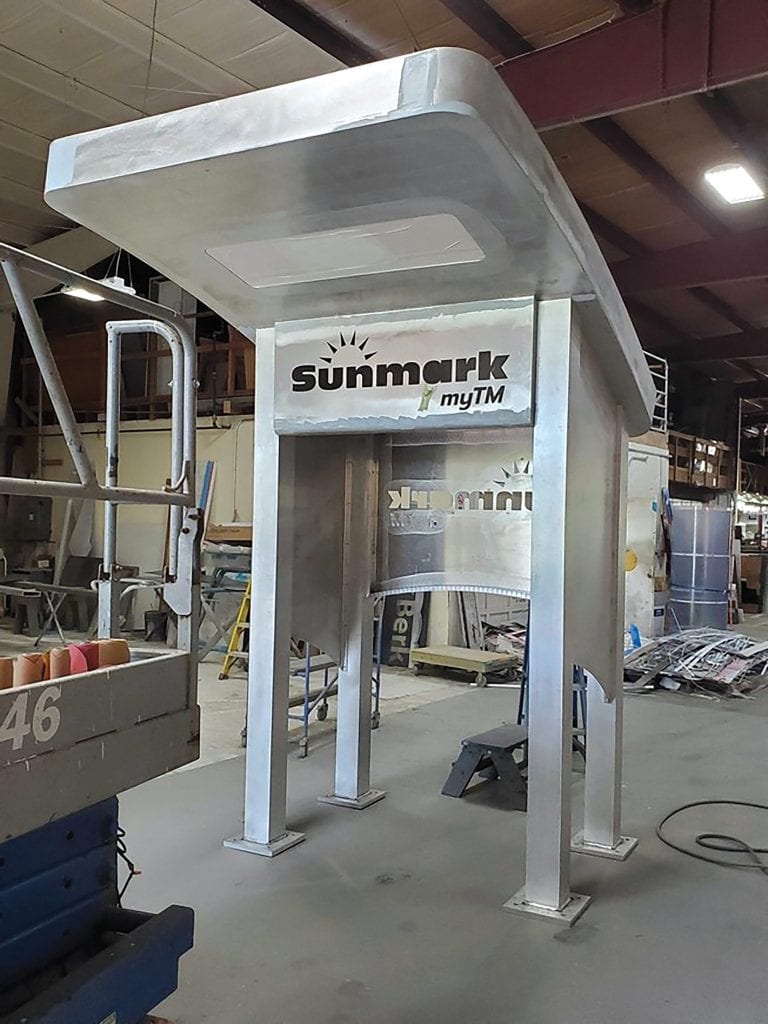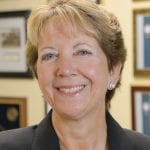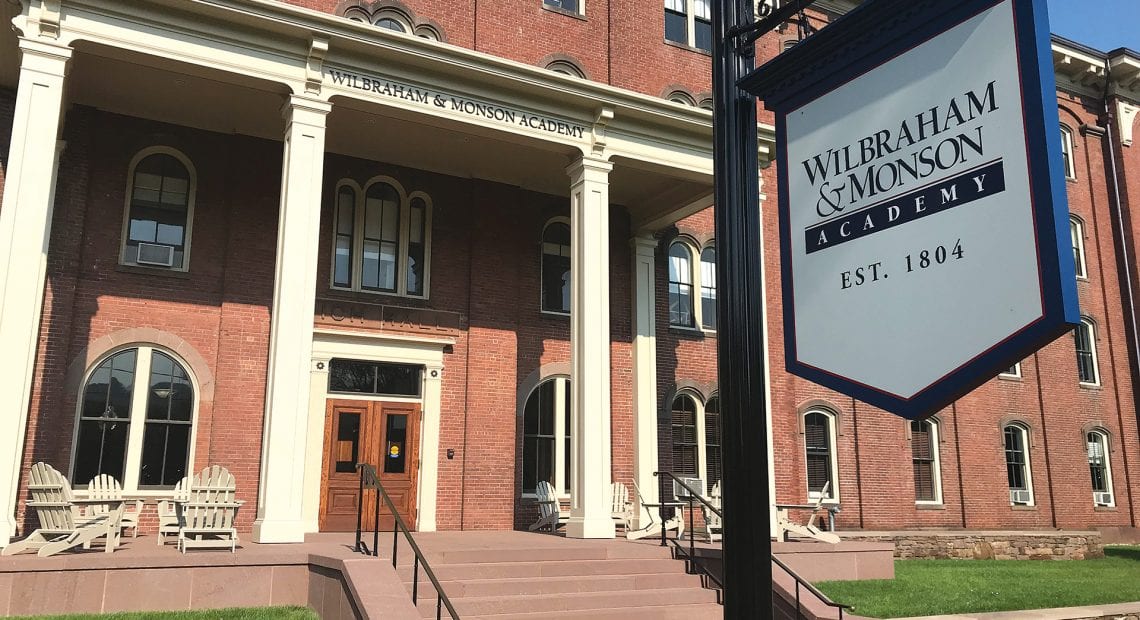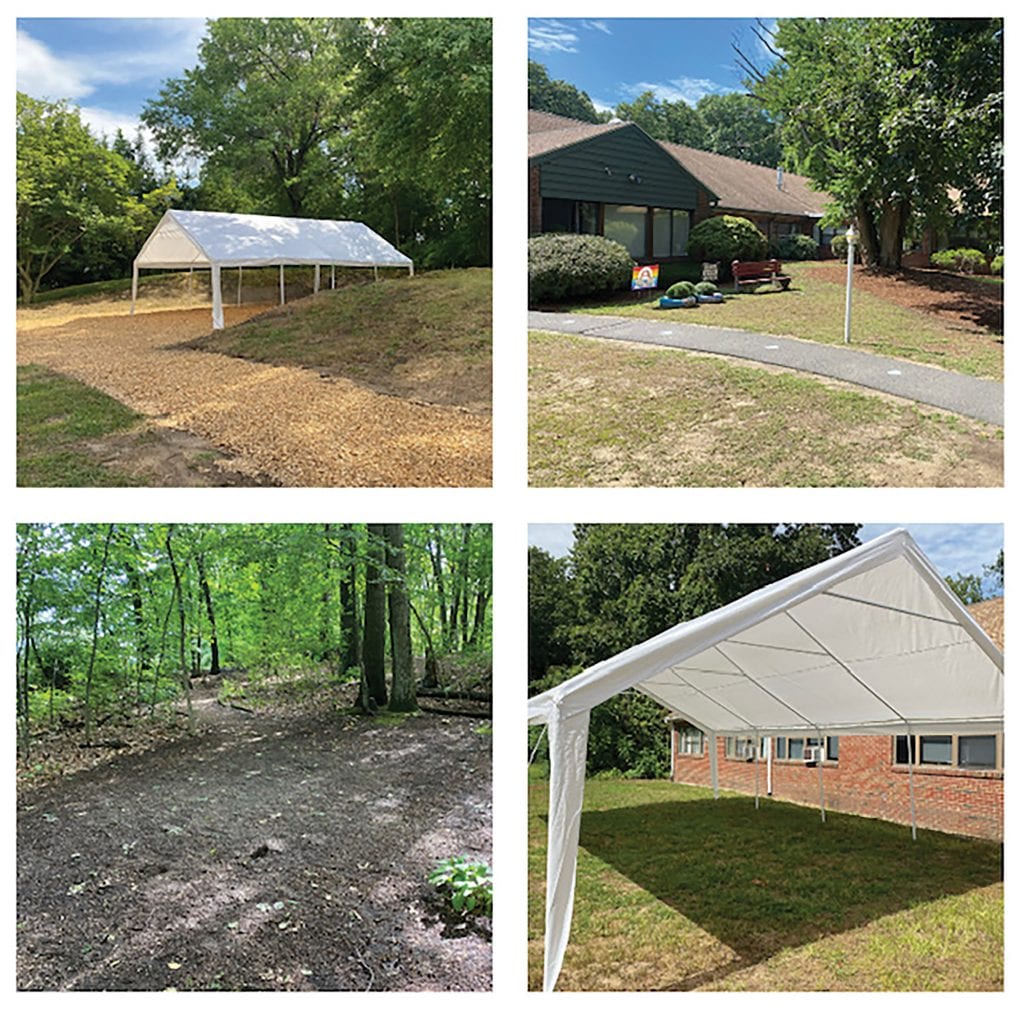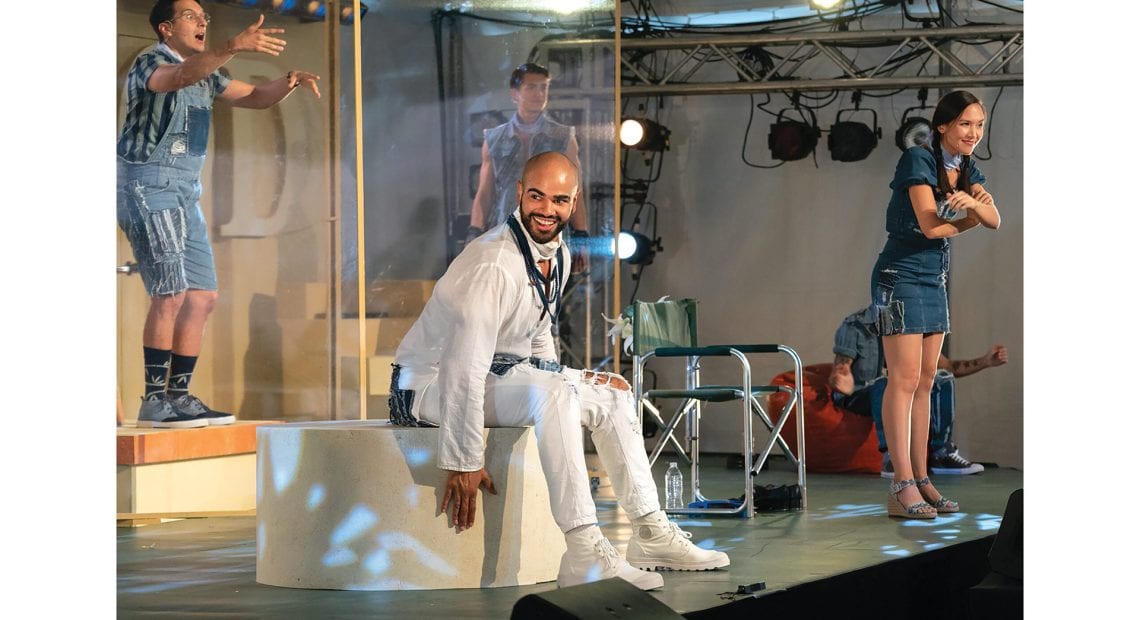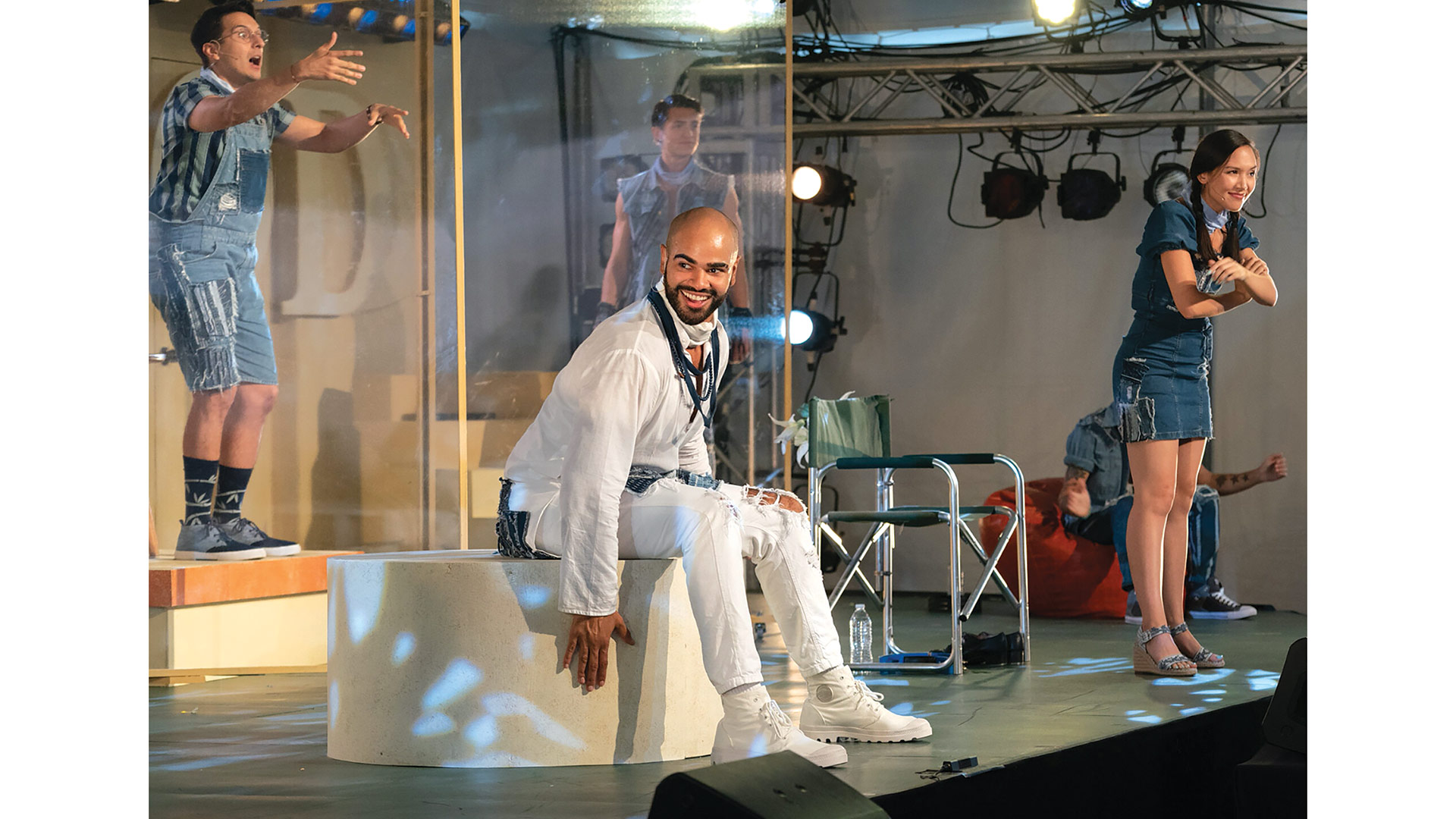Punching Back
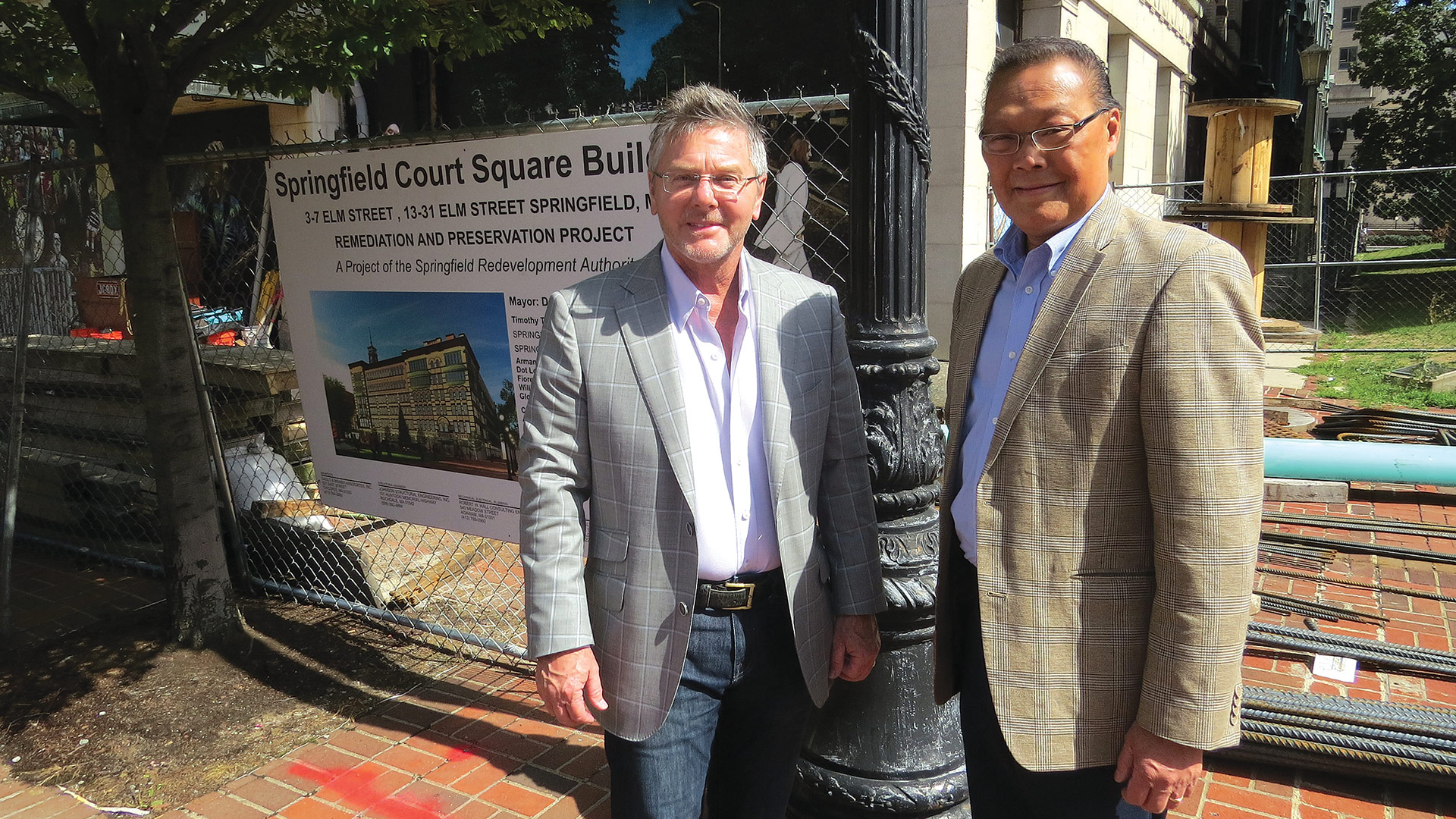
Peter Picknelly, left, and Andy Yee are partnering in a restaurant project at the former Court Square Hotel property.
Springfield Mayor Domenic Sarno noted that his city is certainly well-versed in dealing with natural and man-made disasters — everything from the tornado in June 2011 to the natural-gas explosion a year and a half later.
“Battle-tested” was the phrase he used to describe a community that has been though a lot over the past few decades.
But the COVID-19 pandemic … this is a different kind of disaster.
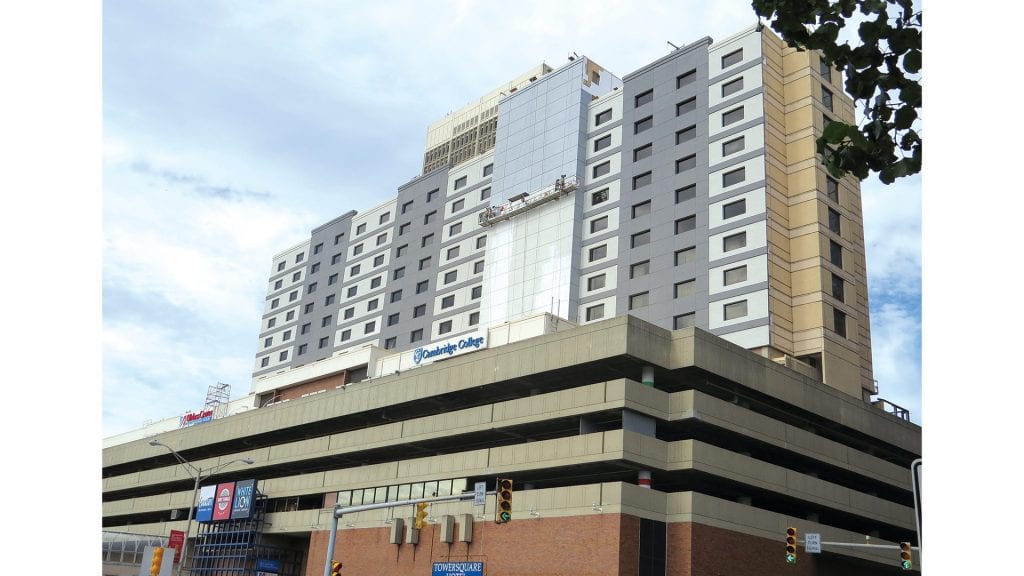
The new façade of the Tower Square Hotel, which expects to be under the Marriott flag next spring.
“It’s like shadow boxing in a lot of ways,” he said, using that phrase to essentially describe a foe that’s hard to hit and an exercise that amounts to punching air. “With those other disasters, I knew what hit us, and I knew how to jab back; with COVID-19, we don’t know when it’s going to go away, and we don’t know what’s going to happen next.”
But the city is certainly punching back against the pandemic, said the mayor and Tim Sheehan, the city’s chief Development officer, noting that it has undertaken initiatives aimed at everything from helping small businesses keep the doors open to assisting residents with paying their mortgage, rent, and utility bills.
And while the pandemic has certainly cost the city some vital momentum, the development community, which usually takes a long view, remains bullish on the city, said Sheehan, noting that there has been strong interest in projects ranging from the former School Department headquarters building on State Street to properties in the so-called ‘blast zone’ (damaged by that aforementioned natural-gas explosion), to buildings in the general vicinity of MGM Springfield in the city’s South End.
“One of more positive things we’re seeing is that development interest in Springfield remains strong,” he told BusinessWest. “And for some larger-scale projects, it’s new interest, from outside the area. And that bodes well for the whole effort that’s been made in terms of the downtown renaissance and the casino development; the development community’s message on Springfield is a good one.”
In the meantime, some projects are already moving forward, most notably the conversion of the long-dormant former Court Square Hotel into apartments and retail space, but also the extensive renovations (although that’s not the word being used) at the Tower Square Hotel in anticipation of regaining the Marriott flag that long flew over the facility, the new Wahlburger’s restaurant going up next to MGM Springfield, the new White Lion Brewery in Tower Square, the conversion of the former Willys-Overland building on Chestnut Street into market-rate housing, movement to reinvent the Eastfield Mall, a plan to redevelop Apremont Triangle, and much more.
But despite these projects, and despite the mayor’s confidence that the city will rebound quickly once the pandemic eases, there are certainly concerns about what toll the pandemic will take on existing businesses, especially those in retail, hospitality, and the commercial real-estate sector — specifically, the office towers downtown.
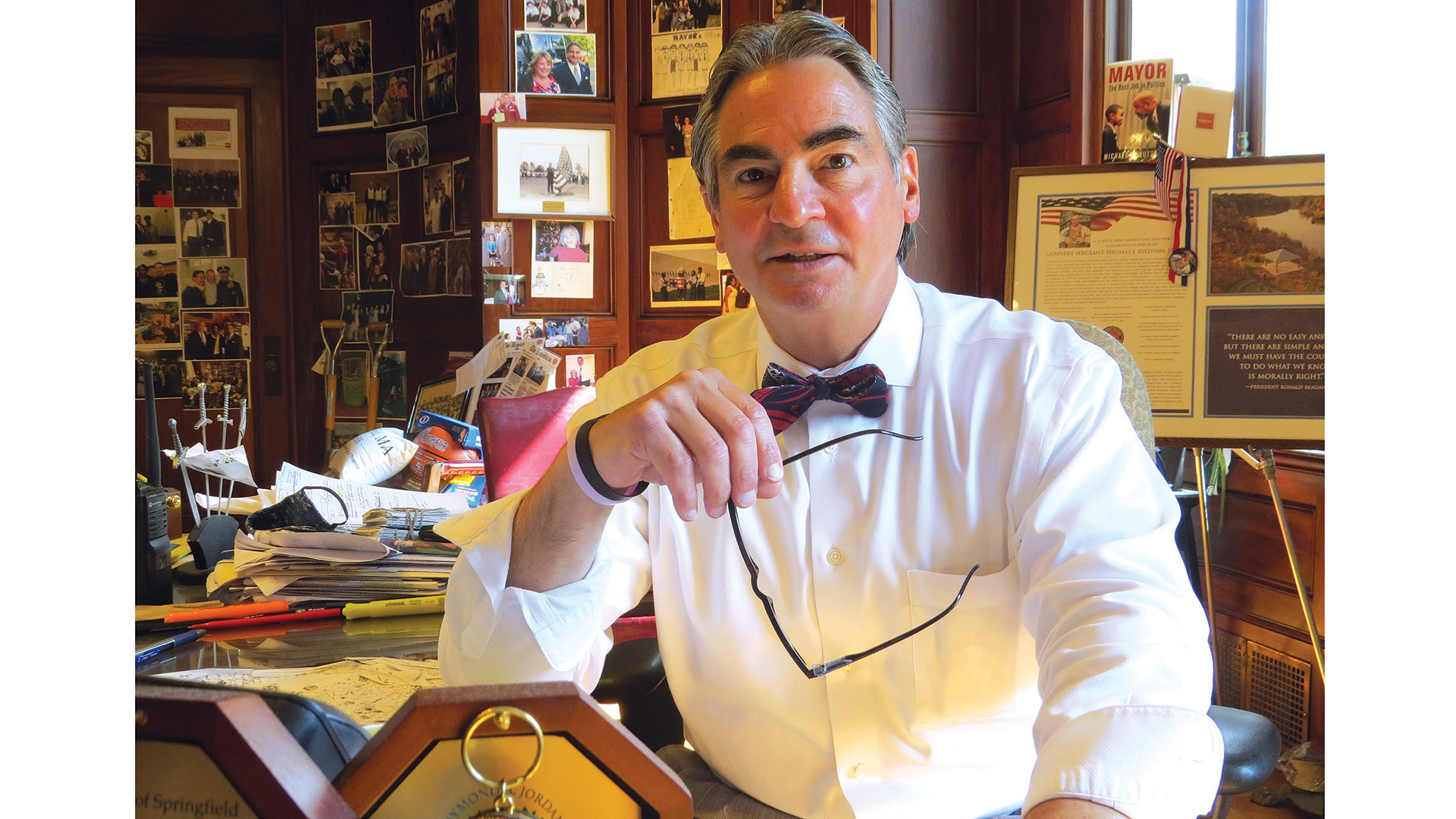
Mayor Domenic Sarno says he’s confident that the city can make a strong — and quick — rebound from COVID-19.
There is strong speculation that businesses that now have some or most employees working remotely will continue with these arrangements after the pandemic eases, leaving many likely looking for smaller office footprints. Sheehan noted that such potential downsizing might be offset by businesses needing larger spaces for each employee in a world where social distancing might still be the norm, but there is certainly concern that the office buildings that dominate the downtown landscape will need to find new tenants or new uses for that space.
“There’s some conflicting data out there — the average size of a typical commercial office lease was going down prior to COVID, and a big reason was the rise of the communal working space,” he explained. “Well, now, the communal working space isn’t working so well anymore; there are some impacts that are forcing companies to require more space, not less.
“It’s like shadow boxing in a lot of ways. With those other disasters, I knew what hit us, and I knew how to jab back; with COVID-19, we don’t know when it’s going to go away, and we don’t know what’s going to happen next.”
“Still, before COVID, the vacancy rate for commercial real estate was somewhat high,” he went on. “We collectively need to be working with the building owners and businesses to make sure those numbers don’t exacerbate as we come out of COVID. But, clearly, there is concern about the commercial real-estate market.”
For this, the latest installment in BusinessWest’s Community Spotlight series, the focus turns to the unofficial capital of the region, the current battle against COVID-19 and the many forms it takes, and the outlook for the future, both short- and long-term.
View to the Future
As he walked around the former Court Square Hotel while talking with BusinessWest about his involvement with the project to give the landmark a new life, Peter A. Picknelly pointed to the windows in the northwest corner of the sixth floor, and noted that this was where a City Hall employee had just told him she wanted to live as he and business partner Andy Yee were leaving a meeting with the mayor.
But then he quickly corrected himself.
“No, she was referring to that corner,” he noted, pointing toward the windows on the northeast side, the ones with a better overall view of Court Square and Main Street. “That’s the one she said she wanted.”
Talk about actually living in the still-handsome structure that dominates Court Square is now actually real, whereas for the better part of 30 years it had been nothing but a pipe dream. That’s how long people have been talking about renovating this property, and that’s how challenging this initiative has been.
Indeed, like Union Station, another project that took decades to finally move beyond the talk stage, Court Square’s redevelopment became real because of a public-private partnership with a number of players, ranging from Picknelly’s Opal Development and WinnCompanies to MGM Springfield, to the city, the state, and federal government.
“This project was a bear, and that building was an albatross around the neck of a lot of mayors,” Sarno said. “This was all about persistence and not giving up when it would have been easy to do that.”
As for Picknelly, this is a legacy project of a sort, he said, noting that his father, Peter L. Picknelly, had long talked about creating a boutique hotel at the site — which, after its days as a hotel, was home to a number of law offices because of its proximity to the courthouse — as a way to inject some life into a still-struggling downtown.
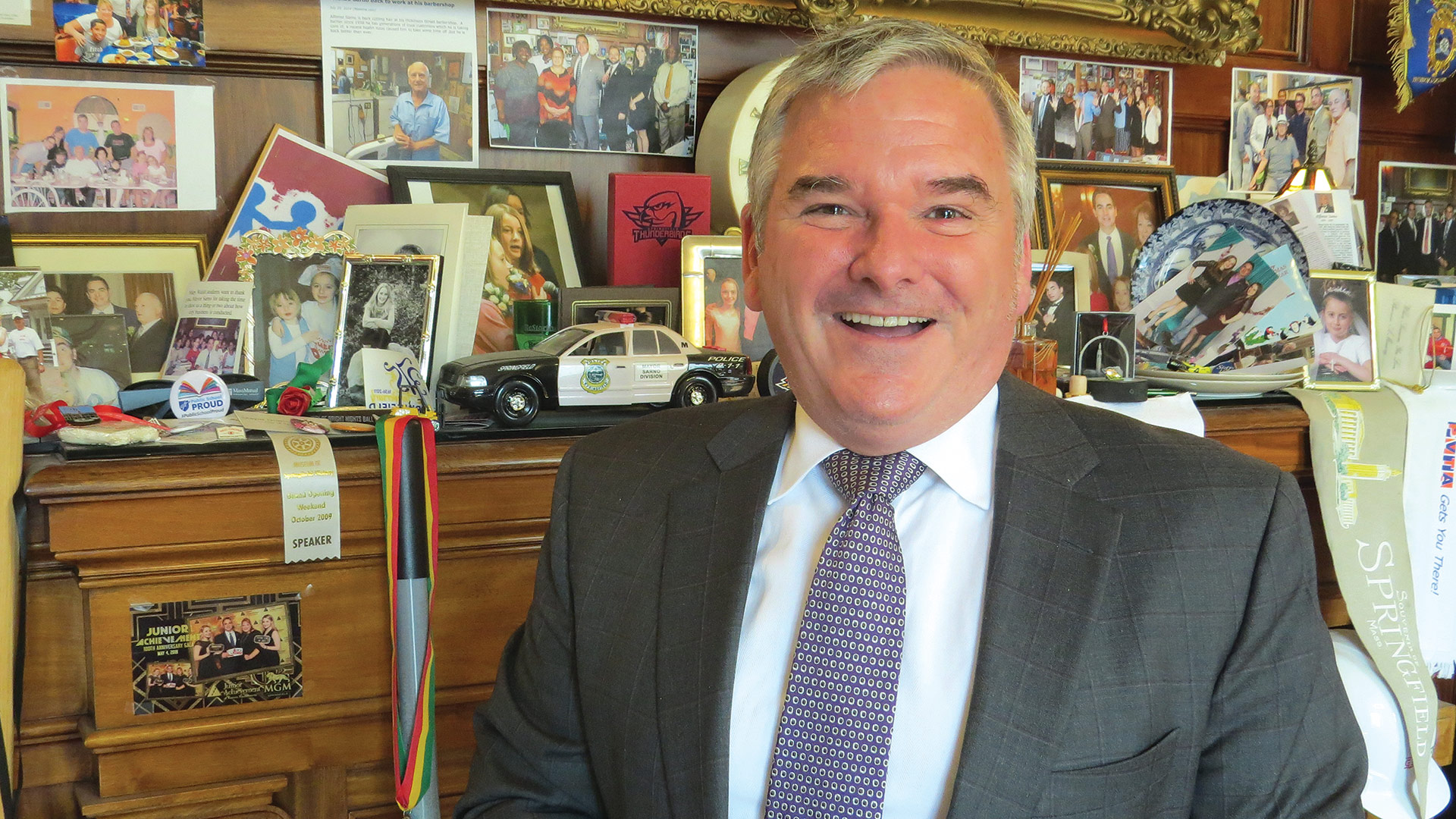
Chief Development Officer Tim Sheehan says the city’s first priority has been to assist businesses and help ensure they’re still in business when the pandemic eases.
The boutique-hotel concept became less viable as new hotels were built in the city, he went on, but the urgent need to convert the property for a new use — identified as the top priority in the Urban Land Institute study completed more than a decade ago — remained.
“How can Springfield really see its full potential if this building is vacant?” asked Picknelly, who again partnered with Yee — the two have resurrected both the Student Prince and the White Hut — to create a restaurant in the northwest corner of the property (more on that in a bit). “This is going to be the centerpiece of Springfield’s renaissance.”
The Court Square project is just one example of how things are moving forward in the city, even in the midst of the pandemic, said Sheehan, noting that, in the larger scheme of things, Springfield remains an attractive target for the development community — and for the same reasons that existed before the pandemic, namely an abundance of opportunities, growing momentum in the central business district, the casino, Union Station, the burgeoning cannabis industry, and more.
Still, the the pandemic has certainly been a major disruptive force in that it has imperiled small businesses across many sectors, especially hospitality; brought a relative stillness to the downtown area as many employees continue to work at home; closed the casino for nearly four months and forced it to reopen at one-third capacity; cancelled all shows, sports, and other gatherings at the casino, the MassMutual Center, Symphony Hall, and elsewhere; and even forced the Basketball Hall of Fame to reschedule its induction ceremonies (normally held this month) to the spring and move them to Mohegan Sun.
So the first order of business for the city has been to try to control, or limit, the damage, said Sarno and Sheehan, adding that it has been doing this in a number of ways, including its Prime the Pump initiative.
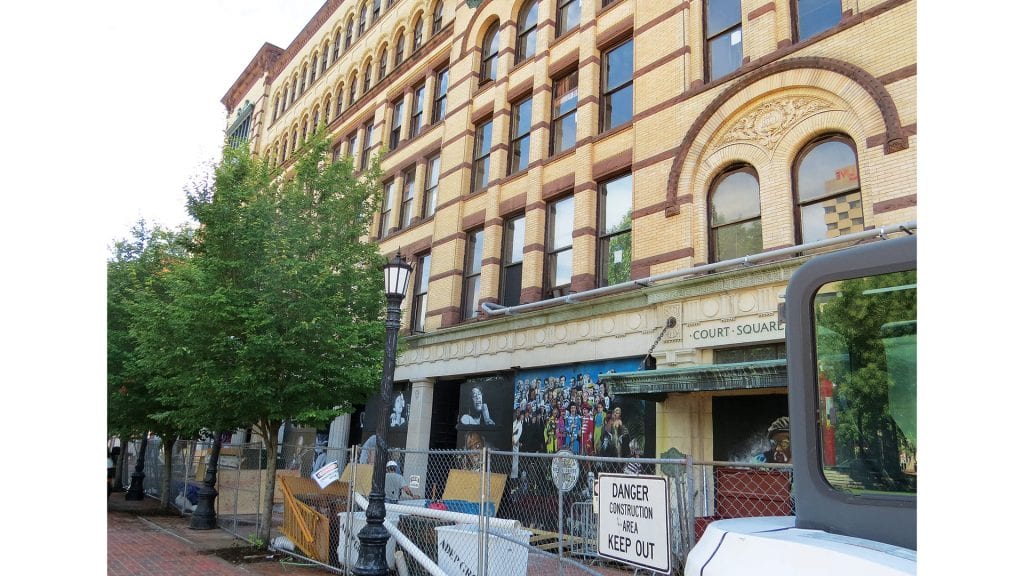
The Court Square project, roughly 30 years in the making, was made possible by a comprehensive public-private partnership.
The program, using Community Development Block Grant monies, has provided small grants to city businesses in amounts up to $15,000. The awards have come over several rounds, with the first focused on restaurants, perhaps the hardest-hit individual sector, with subsequent rounds having a broader focus that includes more business sectors and nonprofits. Sheehan said businesses receiving grant funds have also represented a diversity of ownership.
“Prime the Pump numbers in terms of minority representation were huge — more than 72% of the awards were to minority-owned, women-owned, or veterans, and all of the nonprofits we supported had 30% or more minority participation on their board of directors,” he explained, adding that these numbers are significant because many minority-owned businesses had difficulty attaining other forms of support, such as Paycheck Protection Program loans.
In addition to helping businesses weather the storm, the city has also provided financial assistance to residents, said the mayor, noting that this aid has gone toward paying mortgages, utility bills, and rent, assistance that also helps the city’s many landlords.
“In this region, I don’t think any community has done more to help their businesses and their residents,” Sarno noted. “We have put out well over $5 million, and perhaps $6 million. We’ve been very proactive, and we’re going to continue working with businesses, such as our restaurants, to help them stay open.”
Such support is critical, said Sheehan, because in order to rebound sufficiently once the pandemic subsides, consumers will need to find outlets for that pent-up demand the mayor mentioned.
“How can Springfield really see its full potential if this building is vacant? This is going to be the centerpiece of Springfield’s renaissance.”
“When there is a vaccine, or when our numbers are so low that people feel safe and feel willing to go back out, the responsiveness will be there,” he noted. “My concern is making sure that the businesses we have are still in business when we get there.”
When We Meet Again
While he talked about COVID-19 using mostly the present tense, Sarno also spent a good deal of time talking about the future.
He said the pandemic will — eventually and somehow — relent. And, as he said earlier, he is confident the city will rebound, and quickly, and perhaps return to where it was before ‘COVID’ became part of the lexicon. For a reference point, he chose Red Sox Winter Weekend in January, an event staged by the team but hosted by MGM Springfield. It brought thousands of people to the city, filling hotels and restaurants and creating traffic jams downtown as motorists tried to maneuver around closed streets and various gatherings.
In many ways, Red Sox Winter Weekend is emblematic of all that’s been lost due to the pandemic. It won’t all come back overnight, Sarno and Sheehan noted, but the vibrancy will return.
“COVID-19 has really knocked us for a bit of a loop,” the mayor said, stating the obvious. “But I think there there’s a lot of pent-up … not only frustration, but desire to get back out there, so when we defeat this, I really think we’re going to rebound very nicely, and even quickly, because we continue to move projects forward and put new projects on the board.”


These renderings show what the front lobby (above) and ballroom will look like in the Tower Square Hotel that is being ‘reimagined’ and ‘redesigned’ and will soon be flying the Marriott flag.
This optimism extends to MGM, which had been struggling to meet projections (made years ago) for gross gambling revenue before the pandemic, and has, as noted, been operating at one-third capacity since early summer, with the hotel and banquet facilities closed.
“When MGM was hustling and bustling, with shows coming in, downtown was thriving,” Sarno said. “I’m hoping that, as we head into the last quarter and eventually the holiday season, if people can regain their confidence in going out to places like this, we see things pick up.”
And there will be some positive changes to greet visitors as they return, starting with a new Marriott.
Indeed, work continues on a massive project that Peter Marks, general manager of the hotel, insists is not a renovation, because that word doesn’t do justice to the massive overhaul. He instead said the hotel has been “reimagined” and “redesigned.”
Indeed, slated to open — or reopen, as the case may be — next spring or summer, the 266-room facility is getting a new look from top to bottom, inside and out. The most visible sign of the change is a new, more modern façade that greets visitors coming over the Memorial Bridge. But the entire hotel is being made over to new and stringent standards set by Marriott.
“This is not a reflagging; it’s a new build, and that’s why the work is so extensive,” he explained. “Everything that that a guest could see or touch is being replaced. Beyond that, we’ve moved walls, we’ve moved emergency staircases in the building to accomplish higher ceilings … it’s impressive what has been done.”
The timing of the project — during the middle of a pandemic — has been beneficial in one respect: there was minimal displacement of guests due to the ongoing work and, therefore, not a significant loss of overall business. But the pandemic has also been a hindrance because it’s made getting needed construction materials much more difficult, causing delays in the work and uncertainty about when it can all be completed.
“You might get a shower wall in, but not the shower tub,” Marks explained. “And you can’t do the wall without the tub, so you have to wait, and this happens all the time. If everything goes smoothly from here, it might be April when we reopen, or it could also be summer.”
By then, he thinks the world, and downtown Springfield, will look considerably different, and there will be a considerable amount of pent-up demand.
“Especially for the leisure travelers,” he said. “People are really itching to get out; they’re all waiting to go somewhere, and also go to events, weddings, family reunions, and other celebrations. I’m hopeful that we’ll be opening right when the pent-up demand is coming.”
As for the restaurant planned for the Court Square property, Picknelly and Yee project it will be open for business by the fall of 2022, and that, when it does debut, it will be an important addition to a downtown that may look somewhat different, but will likely still be a destination and a place people not only want to visit, but live in.
“Winn has done 100 renovation projects like this around the country,” Picknelly said. “They are 100% convinced that this building will be fully occupied by the time we open — there’s no doubt in their minds, based on the projections. I think that says a lot about people still wanting to live in urban areas, and I think it says a lot about Springfield and what people think of this city.”
Fighting Spirit
Returning to his analogy about shadow boxing, Sarno said COVID-19 has certainly proven to be a difficult sparring partner.
Unlike the tornado, which passed through quickly and left a trail of destruction to be cleaned up, COVID has already lingered far longer than most thought it would, and no one really knows for sure how much longer we’ll be living with it.
Meanwhile, as for the damage it will cause, there is simply no way of knowing that, either, and the toll creeps higher with each passing week.
But, as the mayor noted, the city is already punching back, and it intends to keep on punching with the goal of regaining the momentum it has lost and turning back the clock — even if it’s only six or seven months.
George O’Brien can be reached at [email protected]



